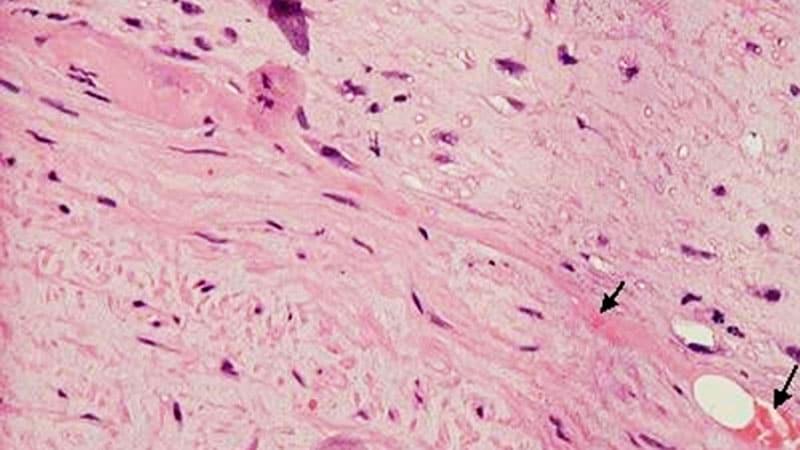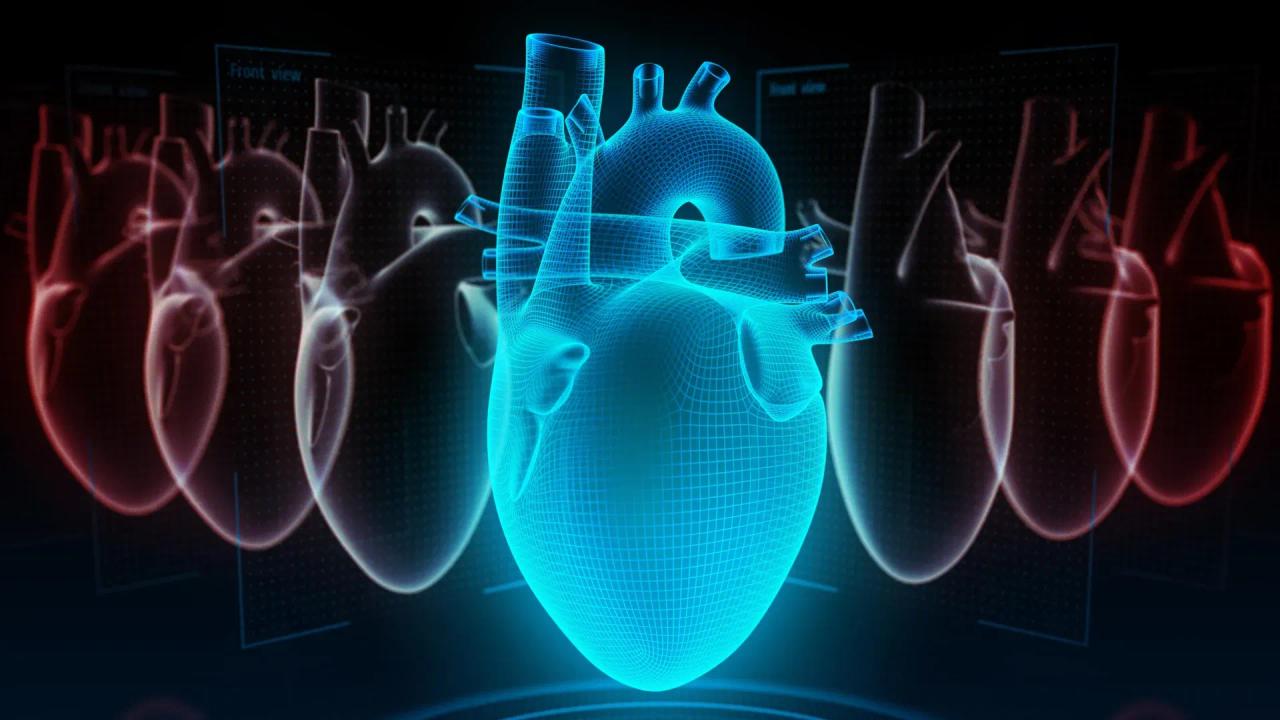New MRI Technique Shows Promise in Predicting Heart Failure Risk
2 Sources
2 Sources
[1]
MRI technique accurately predicts heart failure risk in general population
MRI scans could replace invasive heart tests, as new research shows they can reliably estimate pressures inside the heart to predict if a patient will develop heart failure. The research from the University of East Anglia (UEA) and Queen Mary University of London also identified key risk factors for increased pressure inside the heart, which leads to heart failure. These risk factors include being over 70, having high blood pressure, being obese, alcohol consumption and being male. The paper, "Risk factors for raised left ventricular filling pressure by cardiovascular magnetic resonance: Prognostic insights," is published in the journal ESC Heart Failure. Co-senior author Dr. Pankaj Garg, from UEA's Norwich Medical School, said, "Heart failure is a lethal condition resulting from rising pressures. One of the most significant findings of this study is that MRI-derived pressure measurements can reliably predict if an individual will develop heart failure. "This breakthrough suggests that heart MRI could potentially replace invasive diagnostic tests. Participants with higher heart pressure measured by MRI had a five-fold increased risk of developing heart failure over six years." Previous pioneering research involving UEA, and the universities of Sheffield and Leeds has shown that heart MRI techniques can estimate pressure in the heart that is linked to symptoms and signs of heart failure. However, to date it remains unknown if heart MRI derived pressures can predict heart failure risk in the general population. Analyzing data from more than 39,000 UK Biobank participants, this latest research demonstrates that MRI-detected pressure changes can identify heart failure risk without invasive procedures. Co-senior author Dr. Nay Aung, from the William Harvey Research Institute at Queen Mary University of London, said, "Additionally, we identified key risk factors for developing high heart pressure: age over 70, high blood pressure, obesity, alcohol consumption and male gender. "By combining these factors, we developed a model to predict individual heart failure risk. This advancement enables prevention, early detection and treatment of heart failure, which could save many lives." A heart MRI is a type of scan that uses powerful magnets and radio waves to create detailed images of the heart. Unlike X-rays or CT scans, it does not use harmful radiation. In this research work, both teams analyzed heart MRI data from 39,000 UK biobank participants using artificial intelligence techniques and estimated the pressure inside the heart. They then evaluated each individual's risk factors and their chance of developing heart failure in the future over a six-year follow-up period. The research was co-led by the University of East Anglia in partnership with Queen Mary University of London. Other contributions were made by St Bartholomew's Hospital in London, Norfolk and Norwich University Hospitals, the universities of Leeds and Sheffield, Health Data Research UK and the Alan Turing Institute. UK Biobank is a large-scale biomedical database and research resource containing de-identified genetic, lifestyle and health information and biological samples from half a million UK participants.
[2]
MRI scans show potential to replace invasive heart tests by predicting heart failure risk
University of East AngliaAug 12 2024 MRI scans could replace invasive heart tests, as new research shows they can reliably estimate pressures inside the heart to predict if a patient will develop heart failure. The research from the University of East Anglia (UEA) and Queen Mary University of London also identified key risk factors for increased pressure inside the heart, which leads to heart failure. These risk factors include being over 70, having high blood pressure, being obese, alcohol consumption and being male. Heart failure is a lethal condition resulting from rising pressures. One of the most significant findings of this study is that MRI-derived pressure measurements can reliably predict if an individual will develop heart failure. This breakthrough suggests that heart MRI could potentially replace invasive diagnostic tests. Participants with higher heart pressure measured by MRI had a fivefold increased risk of developing heart failure over six years." Dr. Pankaj Garg, co-lead author from UEA's Norwich Medical School Previous pioneering research involving UEA, and the universities of Sheffield and Leeds has shown that heart MRI techniques can estimate pressure in the heart and are linked to symptoms and signs of heart failure. However, to date it remained unknown if heart MRI derived pressures can predict heart failure risk in a general population. Analysing data from more than 39,000 UK Biobank participants, this latest research demonstrates that MRI-detected pressure changes can identify heart failure risk without invasive procedures. Co-lead author Dr Nay Aung, from the William Harvey Research Institute at Queen Mary University of London, said: "Additionally, we identified key risk factors for developing high heart pressure: age over 70, high blood pressure, obesity, alcohol consumption and male gender. "By combining these factors, we developed a model to predict individual heart failure risk. This advancement enables prevention, early detection and treatment of heart failure, which could save many lives." A heart MRI is a type of scan that uses powerful magnets and radio waves to create detailed images of the heart. Unlike X-rays or CT scans, it does not use harmful radiation. In this research work, both teams analysed heart MRI data from 39,000 UK biobank participants using artificial intelligence techniques and estimated the pressure inside the heart. They then evaluated each individual's risk factors and their chance of developing heart failure in the future over a six-year follow-up period. The research was co-led by the University of East Anglia in partnership with Queen Mary University of London. Other contributions were made by St Bartholomew's Hospital in London, Norfolk and Norwich University Hospitals, the universities of Leeds and Sheffield, Health Data Research UK and the Alan Turing Institute. UK Biobank is a large-scale biomedical database and research resource containing de-identified genetic, lifestyle and health information and biological samples from half a million UK participants. The work was supported by the National Institute for Health and Care Research (NIHR) and the Wellcome Trust. 'Risk factors for raised left ventricular filling pressure by cardiovascular magnetic resonance: Prognostic insights' is published in European Society of Cardiology Heart Failure. University of East Anglia
Share
Share
Copy Link
A groundbreaking MRI technique developed by researchers at University College London (UCL) and Royal Free Hospital could revolutionize heart failure diagnosis and risk assessment, potentially replacing invasive procedures.

Innovative MRI Technique for Heart Failure Prediction
Researchers at University College London (UCL) and Royal Free Hospital have developed a groundbreaking MRI technique that could revolutionize the way heart failure is diagnosed and assessed. This new method, which measures the diffusion of water molecules in heart muscle tissue, has shown remarkable accuracy in predicting the risk of heart failure
1
.The Science Behind the Technique
The innovative approach utilizes diffusion tensor cardiovascular magnetic resonance (DT-CMR) to create detailed 3D maps of heart muscle fibers. By analyzing the movement of water molecules within these fibers, researchers can detect early signs of heart muscle damage, even before visible changes occur
2
.Impressive Accuracy in Clinical Trials
In a study involving 242 patients at risk of heart failure, the new MRI technique demonstrated an impressive 85% accuracy in predicting which patients would develop heart failure within a year. This level of precision surpasses that of current diagnostic methods, including invasive procedures
1
.Potential to Replace Invasive Procedures
The researchers believe that this non-invasive MRI method could potentially replace current invasive tests, such as cardiac catheterization. This shift would not only reduce patient discomfort but also lower the risks associated with invasive procedures
2
.Implications for Patient Care
Dr. Gabriella Captur, the study's lead author, emphasized the technique's potential to transform patient care. By identifying those at highest risk of heart failure, doctors can intervene earlier with appropriate treatments, potentially preventing the condition's onset or slowing its progression
1
.Related Stories
Future Directions and Broader Applications
The research team is now focusing on refining the technique for wider clinical use. They are also exploring its potential applications in other areas of cardiology, such as predicting arrhythmias and assessing the effectiveness of heart failure treatments
2
.Funding and Support
This groundbreaking research was supported by various organizations, including the National Institute for Health and Care Research UCLH Biomedical Research Centre and the UK Medical Research Council. The significant backing underscores the potential impact of this new MRI technique on cardiovascular healthcare
1
.References
Summarized by
Navi
Related Stories
Recent Highlights
1
Google Gemini 3.1 Pro doubles reasoning score, beats rivals in key AI benchmarks
Technology

2
ByteDance's Seedance 2.0 AI video generator triggers copyright infringement battle with Hollywood
Policy and Regulation

3
ChatGPT cracks decades-old gluon amplitude puzzle, marking AI's first major theoretical physics win
Science and Research








